 Technology peripherals
Technology peripherals AI
AI 'Does the ethical framework for artificial intelligence need to be re-examined?”
'Does the ethical framework for artificial intelligence need to be re-examined?”
Artificial intelligence has two obvious goals, which are not mutually exclusive for now, but only one of them can benefit mankind in the long term. These goals are either to enhance people's jobs or to replace people. Two stories caught my attention recently that suggest we may need to adjust what we think of as ethical behavior to properly utilize artificial intelligence.
The first story is about an artist using AI to create artwork that unfairly wins an art competition, while the other story is about using AI to allow students to write better papers faster. The latter is currently linked to cheating.
Both are like arguments I've heard in the past about how calculators and PCs should be banned from schools because they avoid learning the multiplication tables or doing primary research in the library instead of on Wikipedia Need, even if skills evolve over time, using both methods will be more valuable to students as employees than the old way of doing things.
In short, what we ultimately have to figure out is whether using AI to create better products faster is considered cheating, or is it just erring on the side of caution?
Big Artificial Intelligence Ethical Issues
What we haven’t discussed about artificial intelligence is that it may be much easier to create artificial intelligence that replaces humans than it is to create artificial intelligence that enhances humans. The first approach simply focuses on replicating what the person did, creating a digital twin of them, and there are already companies doing this. Even simpler, you don't need to be in contact with humans, who lack a common language, common skills, common interests, or even a common body type. We haven’t even trained people how to deal with conversational AI. As mentioned before, we tend to punish those who use tools effectively rather than reward their skills.
This means that the most effective path of use of AI is not the enhancement path, but the alternative path, because the AI operating alone within its parameters is not objectionable, but the AI is used to significantly enhance the user, especially In competition, this would be considered cheating. This focus on replacement is particularly evident with self-driving cars.
For self-driving cars, the current default technology is to enhance the driver's capabilities, which Toyota calls "Guardian Angel." But in tests, Intel found that giving human drivers control in self-driving cars increases driver stress because they don't know if they will suddenly be asked to drive. Untrained drivers feel more comfortable if the car doesn't offer a human driver option, suggesting that self-driving cars that don't allow or augment a human driver will be more reliable in the long run than those that do. Popular and successful.
In fact, while the industry and companies like IBM are actively promoting AI as a human augmentation tool, the way the market treats this technology (because it is not focused on training better human AI interface and comfort) is becoming a mandatory function of AI as a human replacement, which will become problematic as the labor pool subsequently collapses.
Does it matter if humans are helped by artificial intelligence?
It’s normal for an artist or writer to collaborate with someone more capable than themselves to create a piece of art, a paper, or even a book. Moreover, it is not uncommon for someone to use the shadow writer's name to create a book with the shadow writer's permission.
Would it be worse if an AI was used instead of a teacher/mentor/collaborator/partner/ghostwriter? Or, would using technology be better at connecting the job and the user, since the AI may independently reflect the user's wishes better than another human being, and less ethical since the user doesn't have another person's work as their own? Compromise?
Summary: Rethinking Artificial Intelligence Ethics
Businesses just want quality work, and if they can get higher quality from machines (AI) than people, they will Make and have made less difficult choices. Just think about the process of manufacturing and warehouse automation over the past few decades.
We need to train people on how to use AI and how to accept work products that make the most efficient use of AI resources, while ensuring we prevent intellectual property theft and plagiarism. If we don’t do this, it’s likely that over time the trend in AI will continue to shift from a focus on human assistance to human replacement, which will not be beneficial to industries or the growing number of professions that can make better use of artificial intelligence. intelligent.
The above is the detailed content of 'Does the ethical framework for artificial intelligence need to be re-examined?”. For more information, please follow other related articles on the PHP Chinese website!
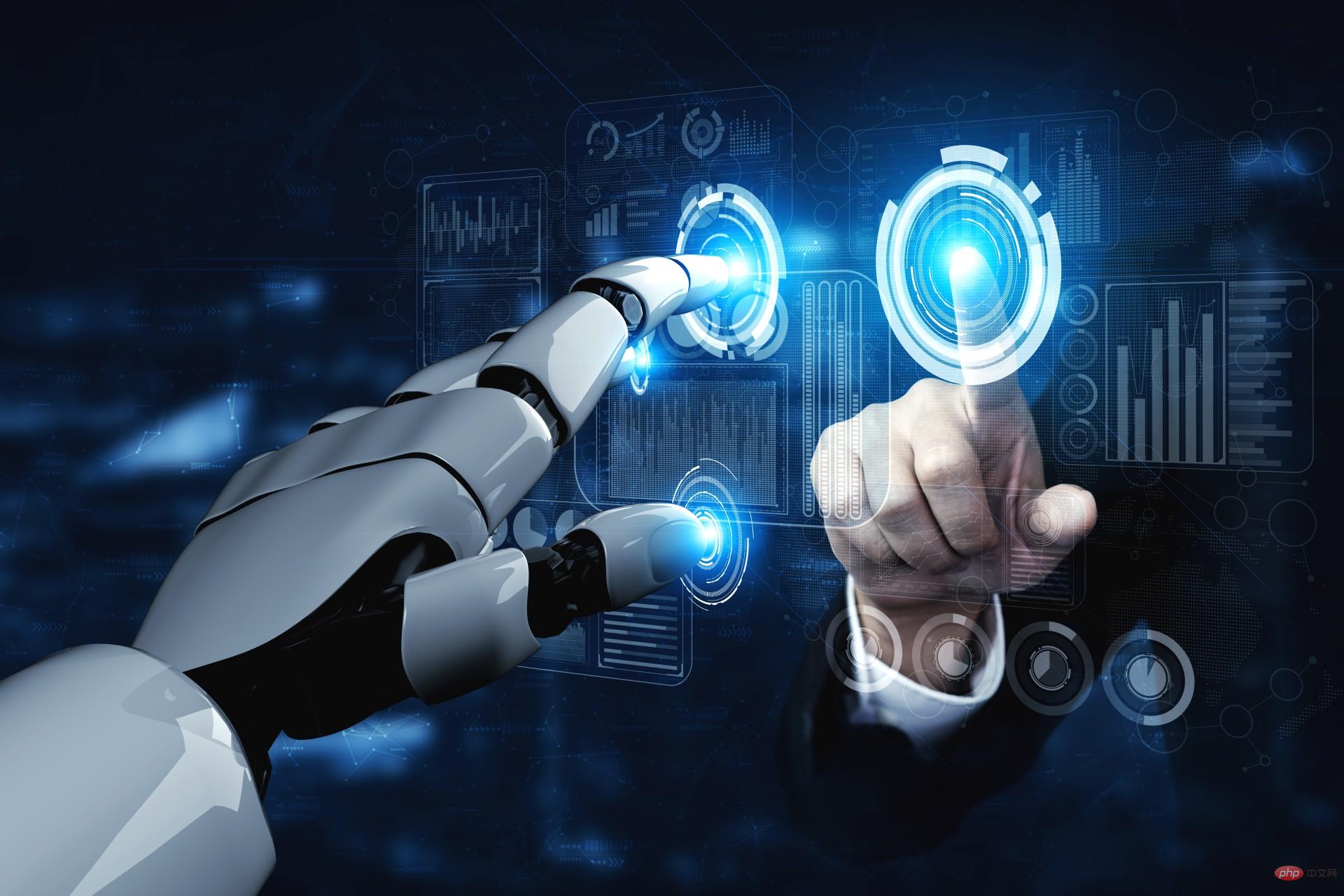 2023年机器学习的十大概念和技术Apr 04, 2023 pm 12:30 PM
2023年机器学习的十大概念和技术Apr 04, 2023 pm 12:30 PM机器学习是一个不断发展的学科,一直在创造新的想法和技术。本文罗列了2023年机器学习的十大概念和技术。 本文罗列了2023年机器学习的十大概念和技术。2023年机器学习的十大概念和技术是一个教计算机从数据中学习的过程,无需明确的编程。机器学习是一个不断发展的学科,一直在创造新的想法和技术。为了保持领先,数据科学家应该关注其中一些网站,以跟上最新的发展。这将有助于了解机器学习中的技术如何在实践中使用,并为自己的业务或工作领域中的可能应用提供想法。2023年机器学习的十大概念和技术:1. 深度神经网
 超参数优化比较之网格搜索、随机搜索和贝叶斯优化Apr 04, 2023 pm 12:05 PM
超参数优化比较之网格搜索、随机搜索和贝叶斯优化Apr 04, 2023 pm 12:05 PM本文将详细介绍用来提高机器学习效果的最常见的超参数优化方法。 译者 | 朱先忠审校 | 孙淑娟简介通常,在尝试改进机器学习模型时,人们首先想到的解决方案是添加更多的训练数据。额外的数据通常是有帮助(在某些情况下除外)的,但生成高质量的数据可能非常昂贵。通过使用现有数据获得最佳模型性能,超参数优化可以节省我们的时间和资源。顾名思义,超参数优化是为机器学习模型确定最佳超参数组合以满足优化函数(即,给定研究中的数据集,最大化模型的性能)的过程。换句话说,每个模型都会提供多个有关选项的调整“按钮
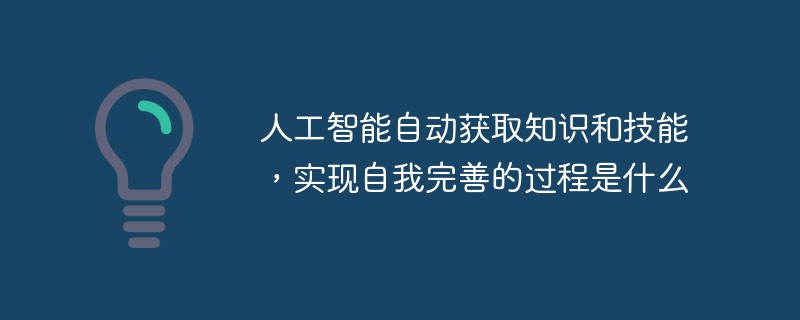 人工智能自动获取知识和技能,实现自我完善的过程是什么Aug 24, 2022 am 11:57 AM
人工智能自动获取知识和技能,实现自我完善的过程是什么Aug 24, 2022 am 11:57 AM实现自我完善的过程是“机器学习”。机器学习是人工智能核心,是使计算机具有智能的根本途径;它使计算机能模拟人的学习行为,自动地通过学习来获取知识和技能,不断改善性能,实现自我完善。机器学习主要研究三方面问题:1、学习机理,人类获取知识、技能和抽象概念的天赋能力;2、学习方法,对生物学习机理进行简化的基础上,用计算的方法进行再现;3、学习系统,能够在一定程度上实现机器学习的系统。
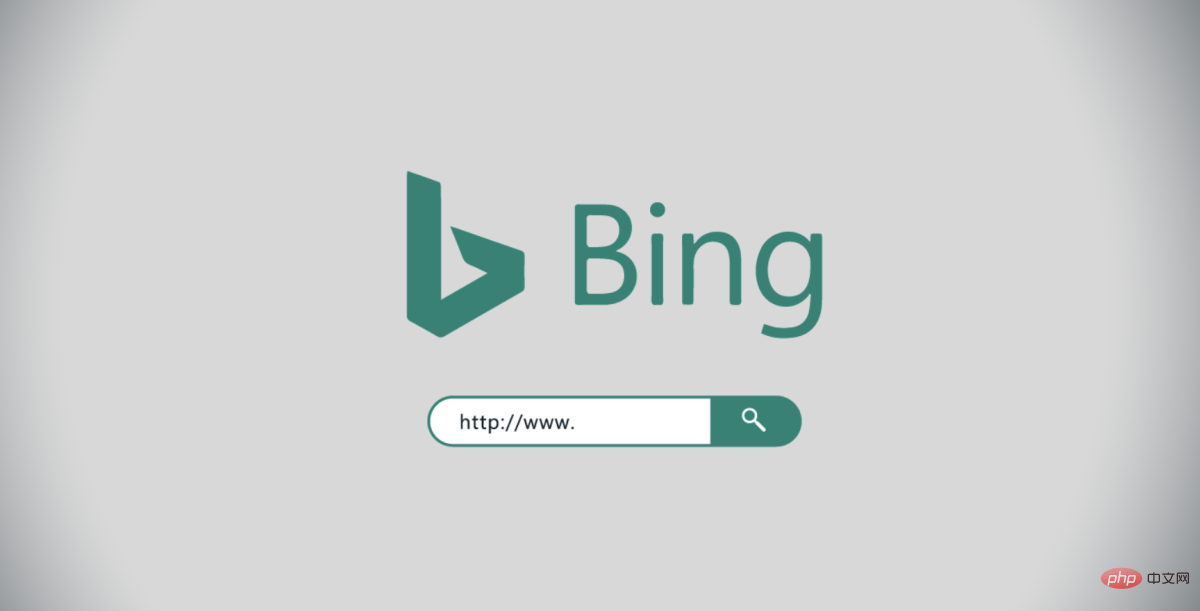 得益于OpenAI技术,微软必应的搜索流量超过谷歌Mar 31, 2023 pm 10:38 PM
得益于OpenAI技术,微软必应的搜索流量超过谷歌Mar 31, 2023 pm 10:38 PM截至3月20日的数据显示,自微软2月7日推出其人工智能版本以来,必应搜索引擎的页面访问量增加了15.8%,而Alphabet旗下的谷歌搜索引擎则下降了近1%。 3月23日消息,外媒报道称,分析公司Similarweb的数据显示,在整合了OpenAI的技术后,微软旗下的必应在页面访问量方面实现了更多的增长。截至3月20日的数据显示,自微软2月7日推出其人工智能版本以来,必应搜索引擎的页面访问量增加了15.8%,而Alphabet旗下的谷歌搜索引擎则下降了近1%。这些数据是微软在与谷歌争夺生
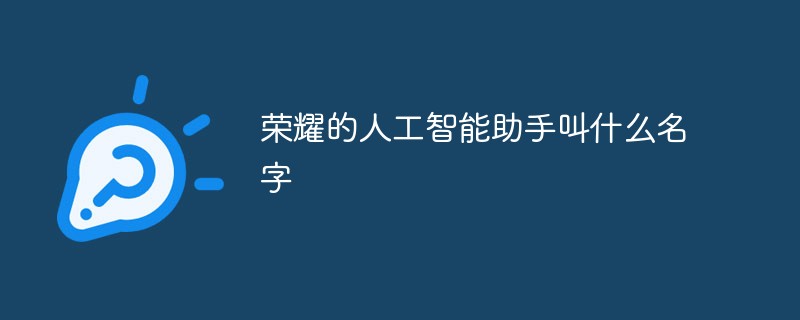 荣耀的人工智能助手叫什么名字Sep 06, 2022 pm 03:31 PM
荣耀的人工智能助手叫什么名字Sep 06, 2022 pm 03:31 PM荣耀的人工智能助手叫“YOYO”,也即悠悠;YOYO除了能够实现语音操控等基本功能之外,还拥有智慧视觉、智慧识屏、情景智能、智慧搜索等功能,可以在系统设置页面中的智慧助手里进行相关的设置。
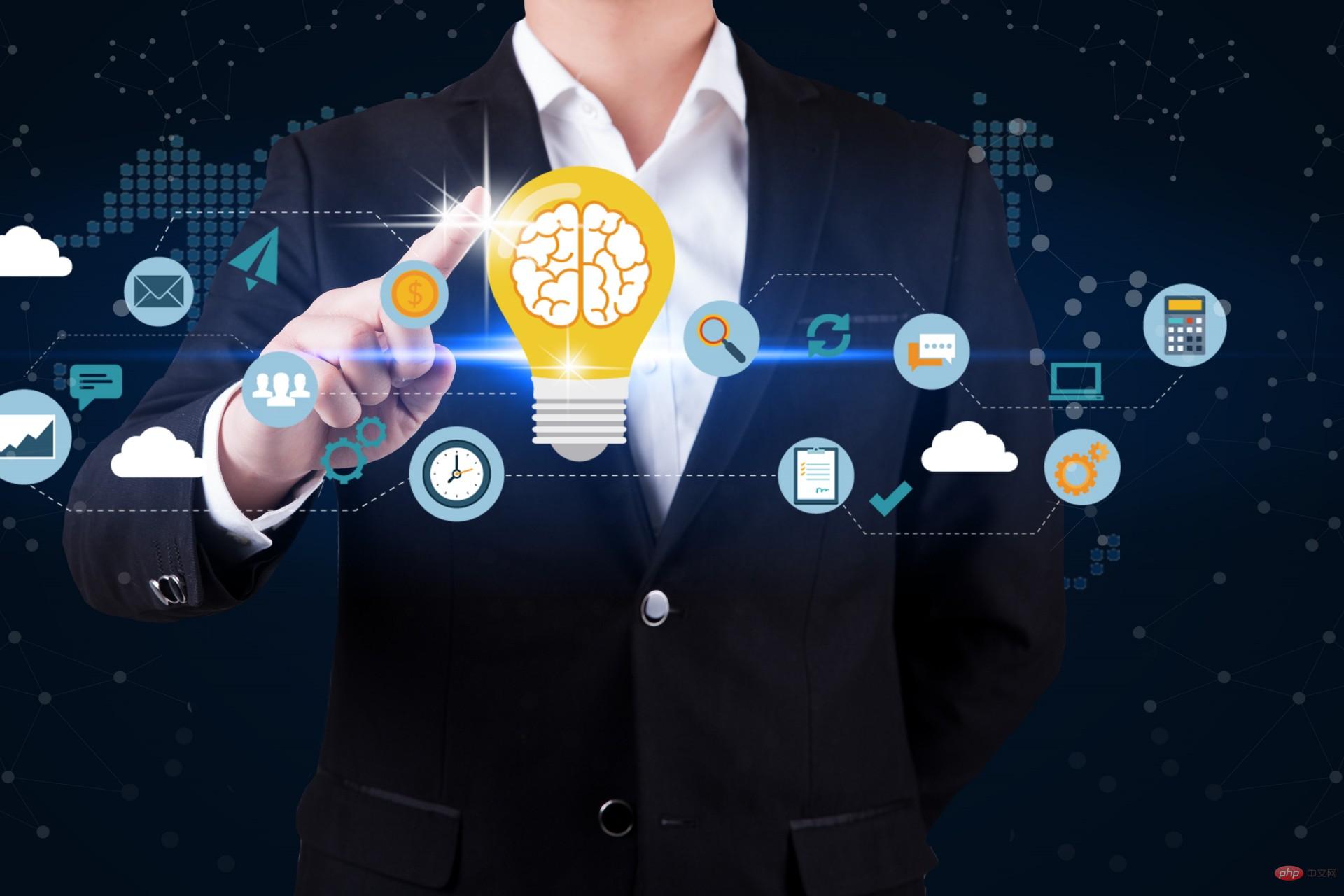 30行Python代码就可以调用ChatGPT API总结论文的主要内容Apr 04, 2023 pm 12:05 PM
30行Python代码就可以调用ChatGPT API总结论文的主要内容Apr 04, 2023 pm 12:05 PM阅读论文可以说是我们的日常工作之一,论文的数量太多,我们如何快速阅读归纳呢?自从ChatGPT出现以后,有很多阅读论文的服务可以使用。其实使用ChatGPT API非常简单,我们只用30行python代码就可以在本地搭建一个自己的应用。 阅读论文可以说是我们的日常工作之一,论文的数量太多,我们如何快速阅读归纳呢?自从ChatGPT出现以后,有很多阅读论文的服务可以使用。其实使用ChatGPT API非常简单,我们只用30行python代码就可以在本地搭建一个自己的应用。使用 Python 和 C
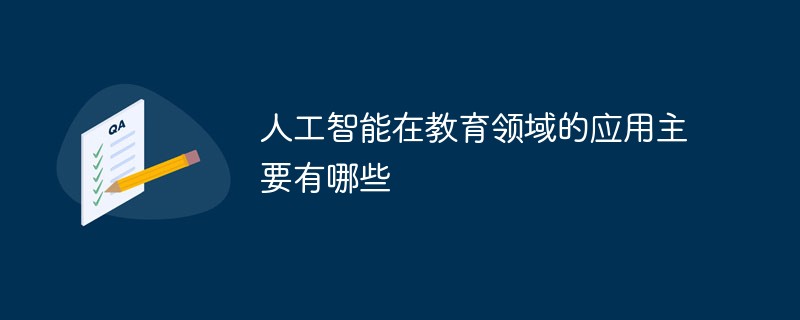 人工智能在教育领域的应用主要有哪些Dec 14, 2020 pm 05:08 PM
人工智能在教育领域的应用主要有哪些Dec 14, 2020 pm 05:08 PM人工智能在教育领域的应用主要有个性化学习、虚拟导师、教育机器人和场景式教育。人工智能在教育领域的应用目前还处于早期探索阶段,但是潜力却是巨大的。
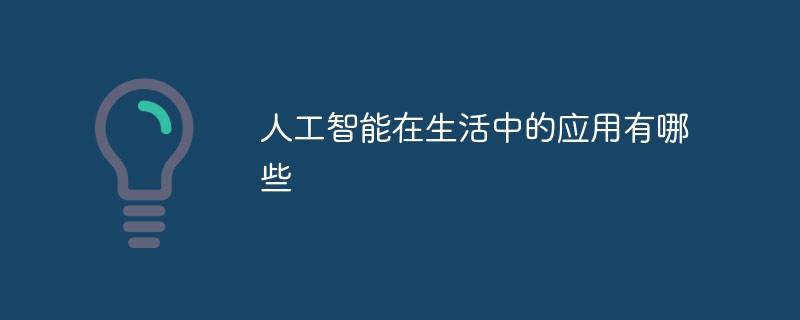 人工智能在生活中的应用有哪些Jul 20, 2022 pm 04:47 PM
人工智能在生活中的应用有哪些Jul 20, 2022 pm 04:47 PM人工智能在生活中的应用有:1、虚拟个人助理,使用者可通过声控、文字输入的方式,来完成一些日常生活的小事;2、语音评测,利用云计算技术,将自动口语评测服务放在云端,并开放API接口供客户远程使用;3、无人汽车,主要依靠车内的以计算机系统为主的智能驾驶仪来实现无人驾驶的目标;4、天气预测,通过手机GPRS系统,定位到用户所处的位置,在利用算法,对覆盖全国的雷达图进行数据分析并预测。


Hot AI Tools

Undresser.AI Undress
AI-powered app for creating realistic nude photos

AI Clothes Remover
Online AI tool for removing clothes from photos.

Undress AI Tool
Undress images for free

Clothoff.io
AI clothes remover

AI Hentai Generator
Generate AI Hentai for free.

Hot Article

Hot Tools

SecLists
SecLists is the ultimate security tester's companion. It is a collection of various types of lists that are frequently used during security assessments, all in one place. SecLists helps make security testing more efficient and productive by conveniently providing all the lists a security tester might need. List types include usernames, passwords, URLs, fuzzing payloads, sensitive data patterns, web shells, and more. The tester can simply pull this repository onto a new test machine and he will have access to every type of list he needs.

EditPlus Chinese cracked version
Small size, syntax highlighting, does not support code prompt function

SAP NetWeaver Server Adapter for Eclipse
Integrate Eclipse with SAP NetWeaver application server.

Atom editor mac version download
The most popular open source editor

PhpStorm Mac version
The latest (2018.2.1) professional PHP integrated development tool





